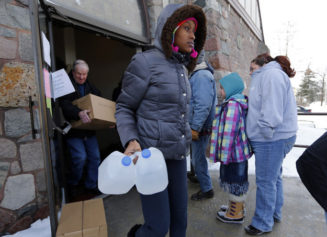In a controversial move that could be called an attack on the poor, Michigan Gov. Rick Snyder signed legislation that requires adult welfare recipients to submit to drug testing if they are suspected of being substance abusers.
Snyder approved House Bill 4118 and Senate Bill 275, a Republican-led initiative that will start as a one-year pilot in three still-to-be determined counties.
“We want to remove the barriers that are keeping people from getting good jobs, supporting their families and living independently,” Snyder said in a press release. “This pilot program is intended to help ensure recipients get the wrap-around services they need to overcome drug addiction and lead successful lives. We’ll then have opportunity to assess effectiveness and outcomes.”
This kind of legislation earmarks the disenfranchised and creates even less belief that the political system is fair, while promoting the unfounded stereotype that the recipients are more apt to use drugs than the rest of the population.
The Civil Liberties Union and the Michigan League for Public Policy opposed the bill.
“We give out tax credits to schools, we give out tax credits to students, we give out tax credits to police and fire (departments),” Sen. Vincent Gregory, D-Southfield, said earlier this year on the Senate floor. “And yet the only (group) that we are now saying is subject to drug screening are the poor—the poorest of the poor.”
Under the program, welfare recipients or applicants suspected of drug use will be required to take a substance abuse test. There was no mention of how someone would be determined to fit into “suspected of drug use” category or who would make the determination.
Refusal to take the test will result in being ineligible for benefits for six months.
A positive drug test would lead to referrals to treatment programs. If an individual refuses to participate in the program or fails to submit to periodic substance abuse testing required under the program, their assistance will be terminated. Benefits can be restored after a person passes a substance abuse test.
Michigan League for Public Policy said similar programs in other states did not save money. The nonpartisan Senate Fiscal Agency estimated a statewide program would cost roughly $700,000 to $3.4 million, while potentially saving $370,000 to $3.7 million in caseload reductions.


